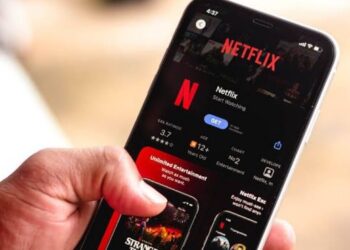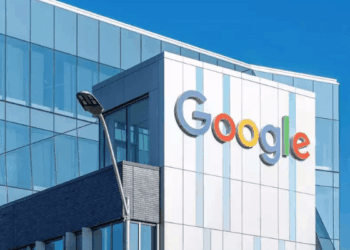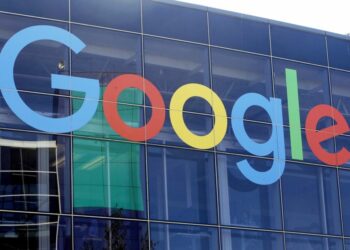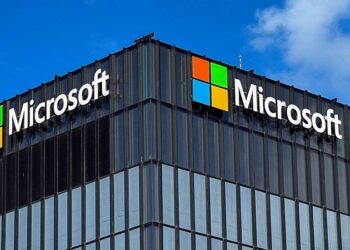The tech world is still grappling with this week’s announcement of Twitter’s acquisition by the world’s richest man, Elon Musk for a whopping $44 billion. But that is not the first acquisition to raise the dust in the tech world.
While the Twitter/Elon Musk deal has been described as the biggest acquisition by an individual, in no particular order, below are the 10 major much-talked-about acquisitions in tech history:
Elon Musk Acquires Twitter
The board of Twitter Inc. on Monday, April 25, 2022, accepted Elon Musk’s $44 billion offer for the company in a deal that sparked both negative and positive reactions all over the world.
The deal, which is expected to be concluded before the end of this year marks one of the biggest acquisitions in tech history and will likely have global repercussions for years to come related to how billions of people use social media.
Under the terms of the deal, shareholders will receive $54.20 in cash for each share of Twitter stock they own, matching Musk’s original offer and marking a 38% premium over the stock price the day before Musk revealed his stake in the company.
Musk first proposed the $54.20-a-share transaction on April 14, igniting a frenzied few weeks as Twitter leaders and Wall Street rushed to figure out whether Musk was serious or not. The deal comes after Musk revealed last week he had lined up $46.5 billion in financing to acquire the company, an apparent turning point that forced Twitter’s board to seriously consider the deal.
Salesforces buys Slack
In July last year, Cloud computing giant Salesforce completed its acquisition of Slack, a $27.7 billion deal that added the messaging app to its suite of enterprise software without immediately changing Slack’s functionality, branding, or leadership.
Salesforce CEO Marc Benioff said in a statement that “Together we’ll define the future of enterprise software, creating the digital HQ that enables every organization to deliver customer and employee success from anywhere.”
Microsoft acquires LinkedIn
After getting its final European Commission approvals, Microsoft in December 2016 announced the closure of its $26.2 billion acquisition of LinkedIn.
LinkedIn, as of that time, had over 400 million registered users, making it the largest social networking site focused on the working world. People use the service both to make work connections with other people in their fields, but also to look for jobs and hire people. As we reported earlier this week, the fact that LinkedIn essentially has a dominant position in this area meant that Microsoft had to make concessions to the EC about how it would work to allow other social networking sites to integrate on its platforms.
Facebook buys Whatsapp
In February 2014, Facebook (now Meta) purchased the messaging service WhatsApp for $19 billion. The acquisition price was staggering for an app that made little money and was largely popular outside the United States then.
Facebook buying WhatsApp was to bolster its already strong position in the crowded messaging world. Messenger, Facebook’s standalone messaging app for mobile devices, was second only to WhatsApp in its share of the smartphone market.
Similar to traditional text messaging, WhatsApp allows people to connect via their cellphone numbers. But instead of racking up texting fees, WhatsApp sends the actual messages over mobile broadband. That makes WhatsApp particularly cost-effective for communicating with people overseas.
Google acquires Youtube
Internet search leader Google, October 2006 snapped up YouTube for $1.65 billion, brushing aside copyright concerns to seize a starring role in the online video revolution.
The all-stock deal united one of the Internet’s marquee companies with one of its rapidly rising stars. It came just a few hours after YouTube unveiled three separate agreements with media companies to counter the threat of copyright-infringement lawsuits.
The price made YouTube Inc., a still-unprofitable startup, by far the most expensive purchase made by Google during that period.
Microsoft buys Skype
In May 2011, Microsoft announced that it was buying the company for $8.56 billion in cash. This came just days after reports that Google and Facebook were interested in partnering with, and possibly buying VoIP company Skype
Preceding the acquisition, Skype had revenue of $860 million on which it posted an operating profit of $264 million. However, overall it made a small loss of $7 million and had long-term debt of $686 million. That made it the second time Skype had been bought out; after being started in 2003, it was purchased by eBay in 2005 for $3.1 billion. eBay then sold the majority of its stake in 2009 to a private investment group for $1.2 billion less than it paid.
Facebook acquires Instagram
Facebook bought Instagram for $1 billion in 2012, a shocking sum at that time for a company with 13 employees.
The US House antitrust subcommittee has made public the email exchanges between Facebook CEO Mark Zuckerberg and former chief financial officer David Ebersman, revealing that the company (and Zuckerberg, in particular) wanted to buy Instagram to avoid competition as it could have hurt the social network. The emails revealed that Zuckerberg wanted Instagram as it was becoming a threat to Facebook.
Yahoo clinches Tumblr
Yahoo in May 2013, officially announced its acquisition of Tumblr in a $1.1 billion cash deal which closed in the second half of the year. “Tumblr is redefining creative expression online,” Yahoo CEO Marissa Mayer had said in the announcement. “On many levels, Tumblr and Yahoo couldn’t be more different, but, at the same time, they couldn’t be more complimentary. Yahoo is the internet’s original media network. Tumblr is the internet’s fastest-growing media frenzy.” In a blog post discussing the change, Mayer insisted that Yahoo won’t “screw up” Tumblr and that it will operate independently.
Google buys Fitbit
Google January last year completed its $2.1 billion acquisition of Fitbit. This followed the EU’s announcement in late 2020 that it had approved the deal after Google made a series of commitments about its planned operation of Fitbit and use of its health data.
In its announcement, Google’s hardware chief Rick Osterloh said the acquisition was “about devices, not data.” Emphasizing this point, he reiterated Google’s commitments about how it will handle the acquisition in markets around the world. These pledges include not using Fitbit users’ health and wellness data for Google’s ad tracking. Osterloh also said the deal won’t affect how third-party fitness trackers work with Android, or how Fitbit works with other non-Google services.
Microsoft swallows Nokia
In its attempt to make a foray into the phone business, Microsoft 2014 acquired Nokia’s phone business and license its patents for 5.44 billion euros ($7.2 billion). Two years after hitching its fate to Microsoft’s Windows Phone software, the Finnish phone maker that once dominated the global market collapsed into the arms of the U.S. software giant, its mobile business ravaged by nimbler rivals Apple Inc and Samsung Electronics.
However, Microsoft’s investment in Nokia did not turn out well. Microsoft originally hired 25,000 Nokia employees as part of its $7.2 billion acquisition of Nokia’s phone business, but a series of layoffs triggered the end of Microsoft’s mobile subsidiary.






















